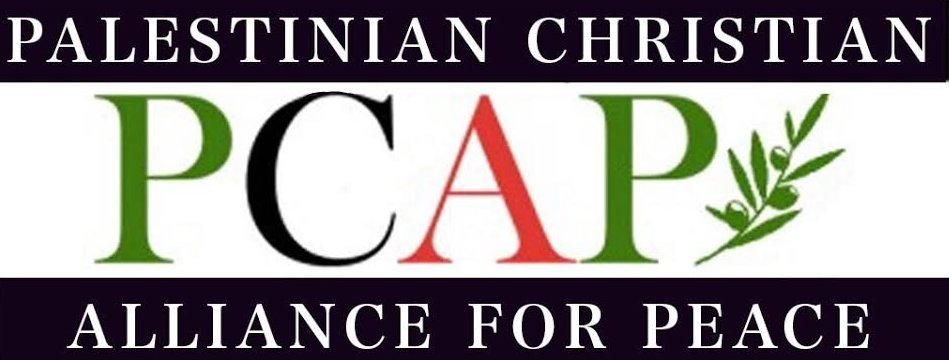Take a Stand Campaign
What can my church and I do to help?
Every Christian is facing a moment of truth as a massive ethnic persecution threatens to eliminate Christians and their Muslim neighbors from the Holy Land. Churches, as moral and community leaders, can play a powerful role in advocating for justice and peace. Below is a list of meaningful actions churches can take to help end the violence and oppression faced by Palestinians, including occupation, ethnic cleansing and genocide. We must act as if our own lives were at stake.
1. Speak out publicly
Include prayers and sermons in your worship addressing the suffering of Palestinians and calling for peace with justice. Refuse to be silent!
Issue statements condemning violence against civilians, collective punishment, and violations of international law.
Use church platforms (newsletters, social media, worship services) to raise awareness.
2. Educate congregations
Use the resources provided at https://www.pcap-us.org/tas-learn-more for books, films.
Host educational events: panels, film events, lectures, and book groups focused on Palestinian history, culture, and contributions.
Start a book club to read and discuss books about the Palestinian experience.
Invite Palestinian Christians, Palestinian authors, and human rights experts to speak. (The Palestinian Christian Alliance for Peace and Friends of Sabeel North America can help.)
Share theological reflections on justice, nonviolence, and solidarity with the oppressed.
3. Advocate politically
Join your faith community’s Israel/Palestine network.
Call on elected officials, both local and national, to:
End military aid and arms sales to Israel until human rights standards are met.
Support international investigations and accountability for war crimes.
Ensure independent investigations into settler attacks.
Push for an end to the illegal occupation and blockade.
Join or initiate interfaith and ecumenical coalitions to advocate for policy changes.
4. Stand in solidarity with Palestinian Christians
Build relationships with churches and Christian communities in Palestine (e.g., via the World Council of Churches or Kairos Palestine).
Share their messages, such as the Kairos Document, which calls on global churches to act against oppression.
Support Palestinian Christian ministries, schools, and relief organizations.
5. Don’t do business with companies supporting Israel’s occupation
Review church and personal investments and divest from companies that profit from war and occupation (American Friends Service Committee (AFSC) has a good list here. A list has just been issued by the United Nations and will be published soon on our website).
Become an “apartheid-free” congregation. See https://apartheid-free.org/about/
Encourage parishioners to make consumer and financial choices in line with justice for Palestine.
6. Engage in nonviolent action
Participate in or host peaceful protests, prayer vigils, and public witness events.
Join or organize pilgrimages or delegations to Palestine to witness conditions and build solidarity. Be sure to spend time with Palestinian Christians and shop/stay in their towns.
Display banners, signs, or art in church buildings calling for peace and justice in Palestine.
7. Offer humanitarian and legal support
Fundraise for medical aid, refugee support, trauma care, and rebuilding efforts in Gaza and the West Bank. Heal Palestine, the Rebuilding Alliance and the Palestine Children’s Relief Fund are some of the groups offering good ways to engage.
Support legal aid organizations helping Palestinians facing eviction, imprisonment, or displacement.
8. Challenge anti-Palestinian racism and Islamophobia as well as antisemitism
Educate your church about anti-Palestinian and anti-Muslim discrimination.
Promote interfaith dialogue with Muslim and Jewish partners who support justice.
9. Learn about and reject Christian Zionism
Re-examine theologies that justify occupation or overlook Palestinian suffering.
Promote a theology centered on freedom, equality, and peacemaking.
Use the Christian Zionism toolkit on the FOSNA website.
10. Offer resources for learning and engagement
Palestinian Christian Alliance for Peace: offers educational resources, a study guide, and a Speakers Bureau; has an excellent collection of films, documentaries and books
Christ at the Checkpoint: a conference and movement led by Palestinian evangelicals
Friends of Sabeel N. America: a nonprofit Christian ecumenical organization seeking justice and peace in the Holy Land through education, advocacy, and nonviolent action
Sabeel Ecumenical Liberation Theology Center: offers Christian theological and grassroots perspectives from Jerusalem
Churches for Middle East Peace (CMEP): offers advocacy and educational resources
Kairos Palestine: a movement of Palestinian Christians calling to the global church
Voices from the Holy Land: provides informative films featuring Palestinian voices
Interfaith: Jewish Voice for Peace, If Not Now, American Muslims for Palestine
Secular: Defense for Children International, Institute for Middle East Understanding
You can reach out to one of the sponsoring organizations below that are “Taking a Stand” for the Holy Land, and by sharing this important message with your friends, family, and fellowship using our helpful campaign resources.
Palestinian Christian Alliance for Peace
Churches for Middle East Peace
Episcopal Peace Fellowship Palestine Israel Network
United Church of Christ Palestine Israel Network
Disciples of Christ Palestine Israel Network
Palestine Justice Network of the Presbyterian Church (U.S.A.)
The Justice for Palestine and Israel Community of the Alliance of Baptists
Friends of Sabeel North America (FOSNA)
Unitarian Universalists for Justice in the Middle East
American Friends Service Committee
Orthodox Christians for Palestine
Indiana Center for Middle East Peace
You can also make a difference by contacting your elected officials. Let them know you believe in equal rights for all in the Holy Land. The main number for Congress is 202-224-3121. The number for the White House is 202-456-1111. Leave a message if you prefer. Every phone call counts! Remember that faith requires action (James 2:17).



